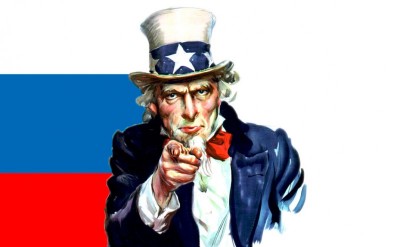The Militarization of Europe, The Dangers of a World War: “Never in the Cold War Had US Put Its Military Force So Close to Russia”

The decision to quadruple its military presence in Europe puts the US at its highest risk of a nuclear war with Russia, since the Cuban missile crisis of the early 1960s, as during the entire history of the mutual relationship it has never placed its military forces so close to Russia, according to Professor Stephen F. Cohen.
Referring to the recently announced US plan to quadruple its military presence in Europe, political analyst Professor Stephen F. Cohen called it an unprecedented and very dangerous provocation.
“We have never put our military force so close to Russia in the history going back to the 18th century,” he said during the John Batchelor Show.
“During the last Cold War our military presence ended in West Berlin. Now we are militarily right on Russia’s borders, at a minimum, in the three Baltic countries, Romania and Poland.”
The expert explained that it would mean the deployment of a lot of heavy military equipment into these countries near Russia, where the US military is going to create a permanent, fully equipped combat brigade that is going to rotate among these countries.“That is how they think they are complying with that NATO-Russia Founding Act of 1997,” he said.
Referring to that particular document, Stephen F. Cohen noted that even though the above US move is a violation of the agreement, it was bogus from the beginning anyway. In the Act, NATO reiterated that
“in the current and foreseeable security environment, the Alliance will carry out its collective defense and other missions by ensuring the necessary interoperability, integration, and capability for reinforcement rather than by additional permanent stationing of substantial combat forces.”
In other words, it gave Russia a pledge not to station forces permanently in Eastern Europe. However, there was left one small loophole in the deal: “current and foreseeable security environment.”
So, what NATO is desperately trying to prove is that there is a security threat to Eastern Europe, and it is due to “Russian aggression.” In this way, its permanent deployment in Eastern Europe won’t theoretically be a breach of the Act.
“So what we now have today is a moment when the New Cold War has become much harder due to a decision taken in Washington,” Professor Cohen says.
“It not only makes the new Cold War more militarized, confrontational, because all that equipment is going to be at the border with Russia, but it makes it more dangerous than the preceding Cold War because then we didn’t have any military power at or near the Russian border.”
“It is going to be permanent…It also makes the possibility for war-like provocations, I mean the war between Russia and the US becomes more likely.”
So, what is happening right now, according to Professor Cohen, is NATO testing Russia, provoking it and awaiting a reaction. Taken into account the possession of nuclear weapons on both sides, the US is in much more danger of a nuclear war with Russia, than there has ever been since the Cuban missile crisis in the early 1960s, he concluded.
And President Obama can’t hide from this now in silence and shadows, as he usually does with the foreign policy issues, he concluded.

